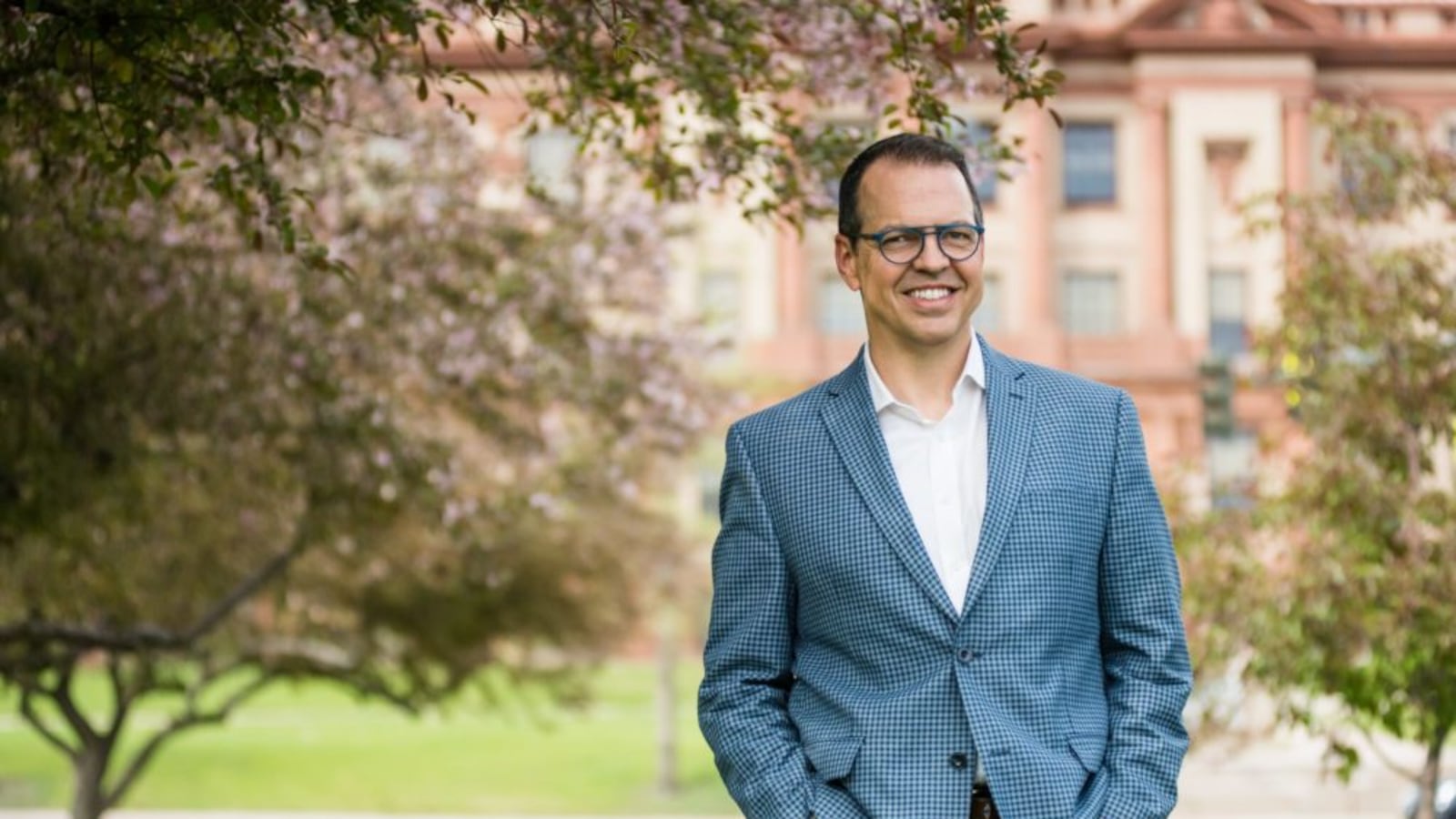A Denver father who has been volunteering in the city’s schools for more than a decade and a half, helping to redesign struggling programs and recommending ways for the district to spend voter-approved tax funds, is running for school board in northwest Denver.
This is the second time Tony Curcio is running for the seat. In a four-way race in 2007, he came in second place to Arturo Jimenez, who went on to serve for eight years. The seat is currently held by Lisa Flores, who is not running for re-election.
Curcio said he decided to run again because Denver Public Schools has “made a lot of strides, but we’re not there yet.” He said he agrees with the district’s goals, including providing great schools in every neighborhood, closing test score gaps, and increasing graduation rates. But he acknowledged the district is far from meeting most benchmarks it set for the year 2020.
“I love the framework we’ve provided,” he said. “It’s time to take another look at the promises we’ve made to our families and our kids, and make a determination if we need to change tactics.”
As for how to get there, Curcio said, “we have to engage the community better.”
Two other candidates are also running for the northwest school board seat: Methodist pastor Brad Laurvick and former Denver teacher Julie Bañuelos. This is the second time Bañuelos has run for school board; she lost a bid for a different seat in 2017.
In all, three seats on the seven-member school board are up for grabs in November. The race is shaping up to be a contest between those who want to “flip the board” and drastically change the direction of Denver Public Schools, and those who believe smaller adjustments are in order.
Asked if he aligns with those who want to flip the board, Curcio didn’t say yes or no.
“It seems to me like we’re playing adult politics,” he said, adding that “we’re squeezing parents and children out of that conversation.”
Curcio is an engineer whose volunteer involvement in Denver Public Schools dates back to a group called Northwest Parents for Excellent Schools that was formed to improve struggling schools in the area. He has since served on several school- and district-level committees. He is a member of the district’s bond oversight committee, which monitors spending of a $572 million bond measure approved by voters in 2016 to build new schools and repair existing ones.
Curcio has three children, and they’ve attended all types of schools. His oldest daughter graduated this year from an independently run charter school. His middle daughter attends a district-run high school, and his son goes to a middle school with innovation status, meaning it’s run by the district but has waivers that grant it charter-like autonomy from certain rules.
Charter schools are controversial because, critics say, they siphon students and money from district-run schools. School choice is controversial for similar reasons. But Curcio notes that there are many families that, like his, have chosen charter or district-run schools outside their neighborhoods because “what’s being provided in those schools is what they need.”
However, he said the district should proceed with caution when opening new schools, ensuring there is “commitment and buy-in from the community” before proceeding.
It’s more likely that northwest Denver will be faced with the difficult question of whether to consolidate existing schools. Rising housing prices have pushed families out of the gentrifying area, and the district predicts that trend will continue. School closure often generates intense pushback, but Curcio said district officials need to be honest with families about the reality.
“If we have under-enrolled schools, we are leaving kids behind in a program that is under-resourced,” he said. “We can’t stand by and watch a school with 100 students struggling with resources. … We have to make good decisions that benefit all families and kids.”
The school board will also have to grapple with how to intervene in schools with healthy enrollment but that are struggling academically. This has been a thorny issue, and the board has changed its approach several times in recent years. Instead of automatically facing closure or replacement for years of low test scores, schools must now submit improvement plans.
Curcio said he would advocate to start with an “inventory” of what’s happening in a school, in the hopes of diagnosing the problem. “If we can understand the problem, we can put together a plan that matters, based on teacher, parent, and student engagement,” he said. “Having that inventory piece makes the engagement process and the improvement process feel authentic.”
Candidates for school board must file at least 67 days before the election, which means candidates could join the race as late as August. No incumbents are running this year.
Thus far, three candidates are vying for the at-large seat held by Happy Haynes, who is barred by term limits from running again. Four candidates are competing for the seat to represent southeast Denver currently held by board President Anne Rowe, who is also term-limited.

